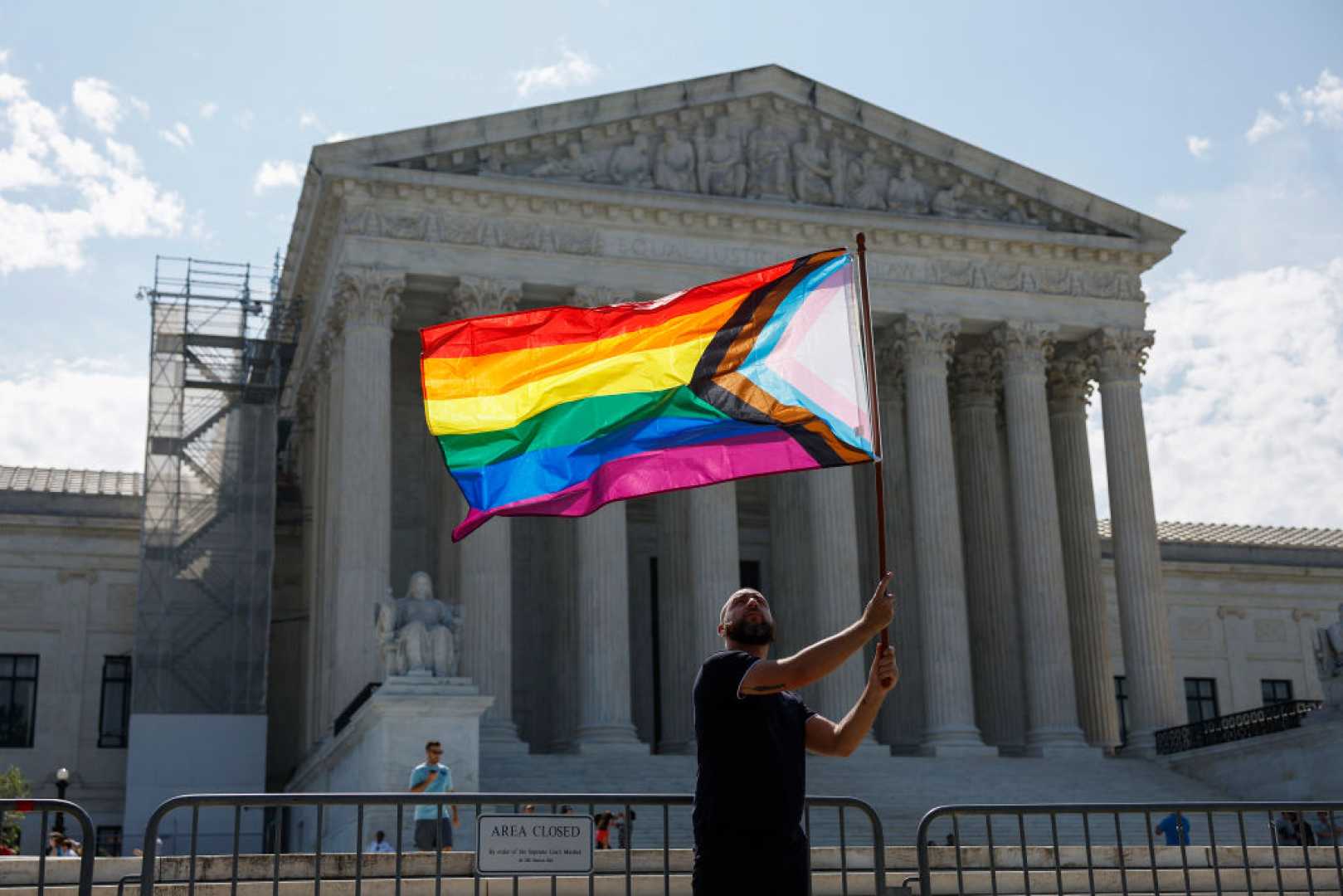Politics
Supreme Court Tackles Controversial LGBTQ Rights Cases This Term

WASHINGTON (AP) — The Supreme Court is starting a new term with a keen focus on President Donald Trump‘s claims of expansive executive power. Hearings will begin at 10 a.m. ET with a significant agenda that includes pivotal cases regarding voting rights and LGBTQ protections.
On Tuesday, the justices will hear important arguments related to bans enacted by nearly half of U.S. states on conversion therapy aimed at altering sexual orientation or gender identity in minors. This case is spearheaded by Kaley Chiles, a Christian counselor challenging a Colorado law that prohibits such therapy. Chiles, supported by the Trump administration, argues the law infringes on her freedom of speech, preventing her from offering voluntary, faith-based therapy to children.
Colorado argues that the 2019 law is necessary to protect the welfare of minors, as conversion therapy has been scientifically discredited and linked to adverse outcomes like depression and suicidal ideation. State attorneys assert that therapists are still permitted to engage in faith-based discussions surrounding gender and sexuality without performing harmful treatments.
Linda Robertson, a mother from Washington state, shared her son’s struggles with conversion therapy, which left him feeling ashamed and depressed. He died by suicide at the age of 20 after unsuccessful attempts to change his sexual orientation. “What happened in conversion therapy devastated Ryan’s bond with me and my husband,” she said.
The arguments arrive after the Supreme Court’s conservative majority ruled against transition-related healthcare for transgender youth earlier this year. The upcoming litigation is poised to tackle the legal landscape surrounding such contentious issues.
Chiles contends her approach differs from traditional conversion therapy and claims there is no substantial evidence of harm caused by her methods. However, Colorado’s law permits therapy that affirms a minor’s transition but not therapies aimed at altering their assigned sex at birth.
Legal professionals argue that under the First Amendment, states cannot outlaw particular speech, especially if it involves religious or moral views. Chiles’s attorney emphasized that counseling should be available for minors who wish to explore changing their sexual orientation.
The case attracted opposition from various groups advocating for LGBTQ rights outside the Supreme Court, with demonstrators decrying conversion therapy. Mathew Shurka, an advocate, described the stakes as life and death for many children affected by the practice.
The Supreme Court’s decision on whether to uphold Colorado’s law will develop the extent of state regulation on mental health practices as they relate to gender identity and sexuality.
As the term unfolds, close attention will be paid to other cases regarding executive power and related issues concerning Trump’s policies, indicating that the coming months could be transformative for American legal precedents.












